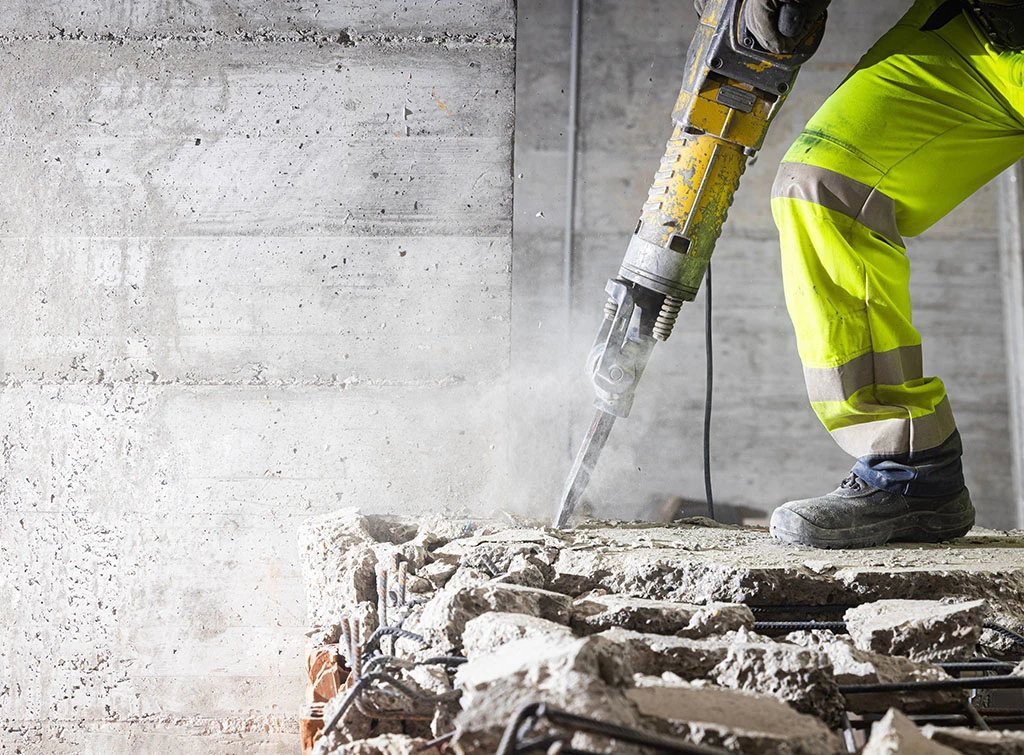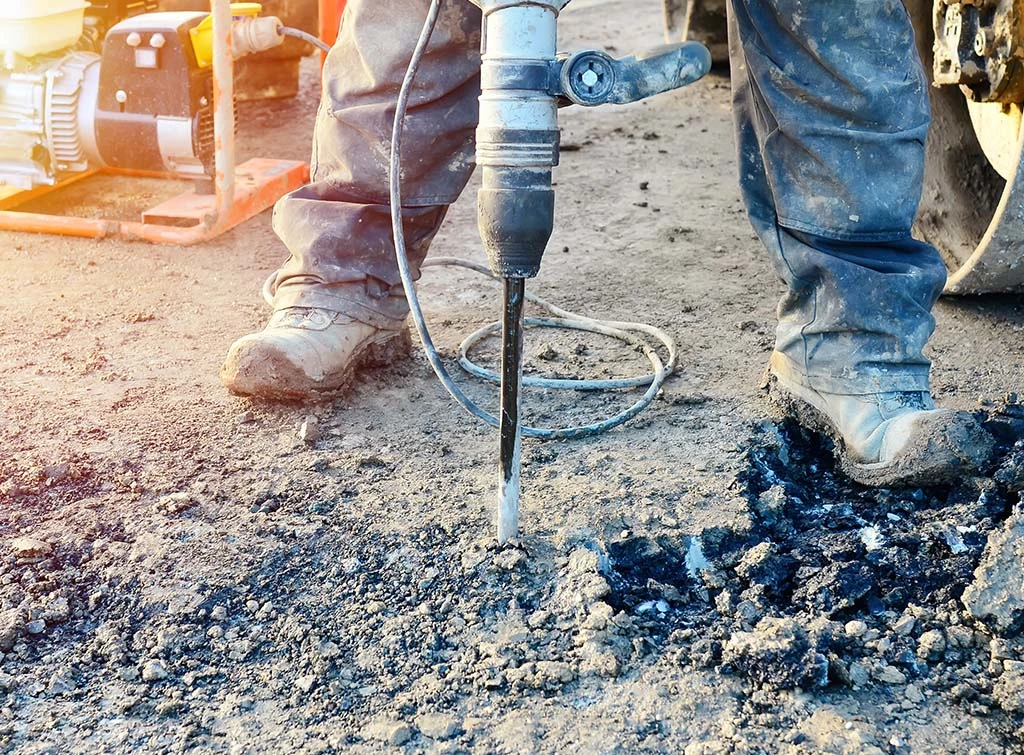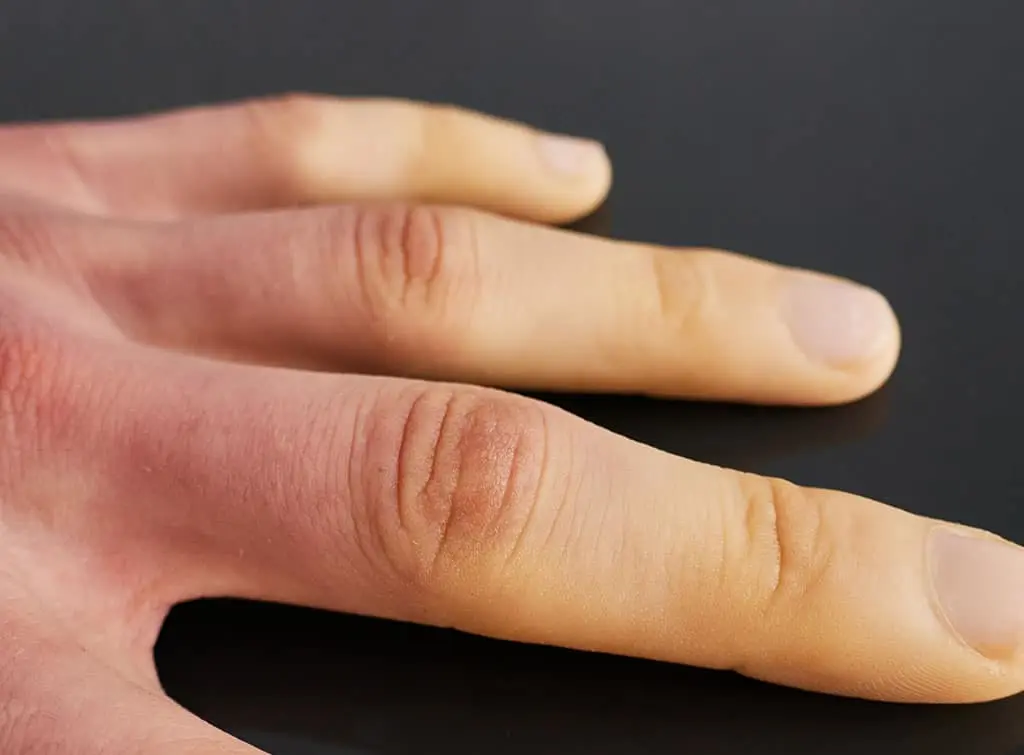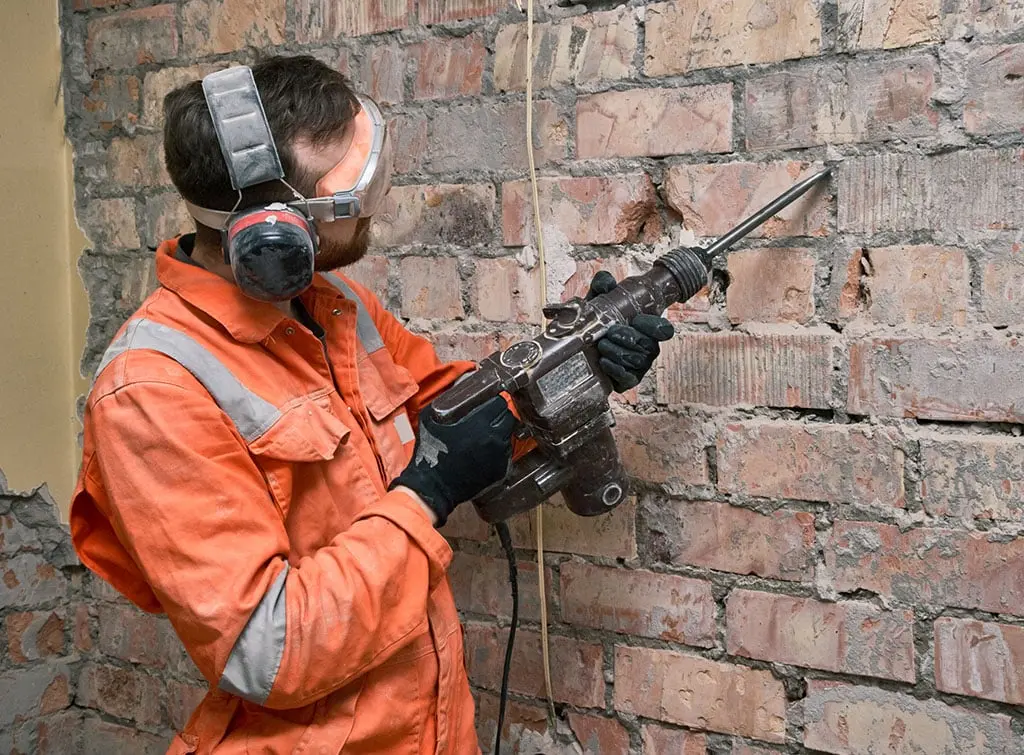Blog>Trade>Business Management>What is HAVS?
Last updated: 17 October 2024
What is HAVS?
Anyone working in the trades knows that they can be exposed to plenty of potential risks. But some are less obvious than others. Read on to learn more about HAVS, and the symptoms of hand-arm vibration syndrome.

What is hand-arm vibration syndrome?
HAVS, or hand-arm vibration syndrome, is a painful illness that develops as a result of constant exposure to vibrations.
Said use of vibration-heavy tools causes damage to the nerves, blood vessels, and joints, of your fingers, hands, and arms. As a result, sufferers begin to experience pins and needles or numbness in these areas.
HAVS is also related to another common construction illness – Vibration White Finger. Here, suffers experience their fingers turning white during cold weather. They then become painful upon warming up, making it difficult to use your hands.

What causes HAVS?
As we’ve already stated, HAVS is caused by constant exposure to powerful and regular vibrations. For tradespeople, this is most often in the form of hand-held power tools used in their job. Such as:
Chainsaws
Chipping hammers
Concrete breakers
Disc cutters
Grinders
Hammer drills
Sanders
Although it’s not clear why these vibrations cause such issues, it’s thought to relate to blood vessel damage. Through small, repetitive injuries, the nerves and blood supply to your hands and arms is reduced.
Eventually, this results in a loss of sensation and mobility.
Protect your staff with Checkatrade
We offer members extensive discounts on workwear and PPE through our partners
What are the symptoms of hand-arm vibration syndrome?
While HAVS can be defined as a loss of feeling in the fingers, hands, and arms, there are general symptoms. These can include, but are not limited to, the following:
Numbness and loss of feeling in the fingers, hands, and arms
Pins and needles or a tingling sensation in your fingers
A loss of dexterity
Loss of hand strength
Vibration white finger
More serious symptoms can also include the following:
Permanent numbness in the affected area
A permanent reduction in hand dexterity
Frequent and painful VWF
As you can see, HAVS has the potential to be quite serious. And it can drastically impact your ability to work.

Can you cure HAVS?
Unfortunately, once you start to develop hand-arm vibration syndrome, there is no cure. The damage caused by HAVS is permanent, although it can be managed.
There are also plenty of ways you can reduce your exposure to vibrations, mitigating your chances of developing this illness.
How to avoid HAVS
Now, having read about HAV’s meaning and symptoms, you might be concerned about developing it. The good news is that the symptoms of hand-arm vibration syndrome only develop after several years of tool use. Sometimes it can be as long as a decade.
However, your odds of developing HAVS increase if you use hammer tools for more than 15 minutes per day. With other tools, you can use them continuously up to a full hour.
When working with any power tools, you should always adhere to the following:
Using suitably low-level vibration tools
Using the right tool for a given job
Keeping your tools maintained and in good repair
Spreading out your work activities to limit exposure
Taking regular work breaks
Holding tools in a loose but sensible grip
Changing your grip positions regularly
Keeping your tools warm
Keeping your hands warm and protected with appropriate PPE
While not able to prevent the development of HAVS fully, doing all of these will help reduce the risk.
Grow your business with Checkatrade today
We're the UK's most popular online directory for reputable tradespeople
HAVS and employer responsibility
Much like all areas of trade work, employers have a responsibility to their employees regarding HAVS. This is laid out in the Control of Vibration at Work Regulations 2005. These are part of the Health and Safety at Work Act 1974.
In essence, as an employer, it is your job to mitigate the risk of exposing your team to HAVS. You need to protect your workers from vibrational risks and ensure that you provide the right gear for the job**.**
Therefore, it’s essential that you perform adequate risk assessment in this area before starting any project.

How can Checkatrade help?
So, now you know what HAVS is, and how to avoid it, you can think about protecting your staff. And the good news is that we can help with that at Checkatrade.
By becoming a member, you could enjoy discounts on workwear and PPE. Thanks to our partners at suppliers such as Selco, Wickes and Tradepoint.
Get in touch today to learn more about our membership benefits. And don’t forget to read our other work safety guides. We have pieces on electricity work regulations, work hazards to watch for in construction, and safe working practices.
Protect your staff with Checkatrade
We offer members extensive discounts on workwear and PPE through our partners

